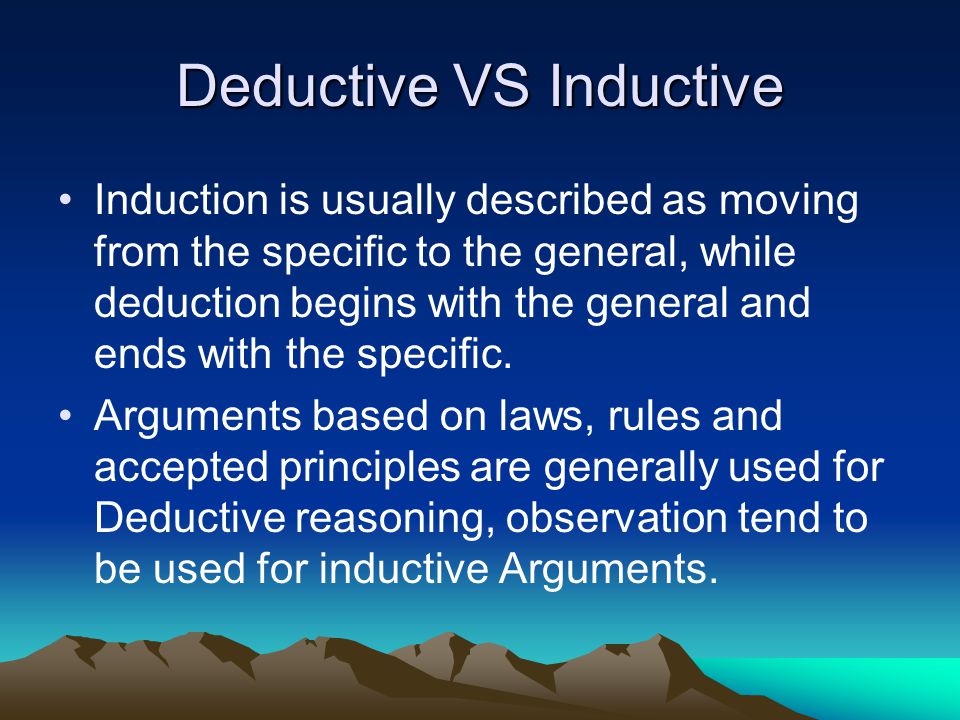
This page offers basic library information and insight on what does and does not constitute argument, as well as a brief comparison of inductive and deductive reasoning.

What Argument Is
An Argument is . . .
Argument should reflect the spirit of "come, let us reason together."
An argument is not the same thing as a quarrel. The goal of an argument is not to attack your opponent, or to impress your audience. The goal of an argument is to offer good reasons in support of your conclusion, reasons that all parties to your dispute can accept.
Nor is an argument just the denial of what the other person says. Even if what your opponent says is wrong and you know it to be wrong, to resolve your dispute you have to produce arguments. And you haven't yet produced an argument against your opponent until you offer some reasons that show him to be wrong.
[Source: jim.pryor@nyu.edu Philosophical Terms and Methods: What Is an Argument? http://www.jimpryor.net/teaching/vocab/argument.html]
What Argument Is Not
An Argument is NOT . . .
[Source: Mesa Community College, "Defining Arguments" http://www.mesacc.edu/~paoih30491/ArgumentDefine.html]
Use of invective, name-calling, or similar means to beat down or belittle an opponent is not argument; it is quarreling.

Source: http://havlicek.weebly.com/chapter-3-analyzing-arguments.html